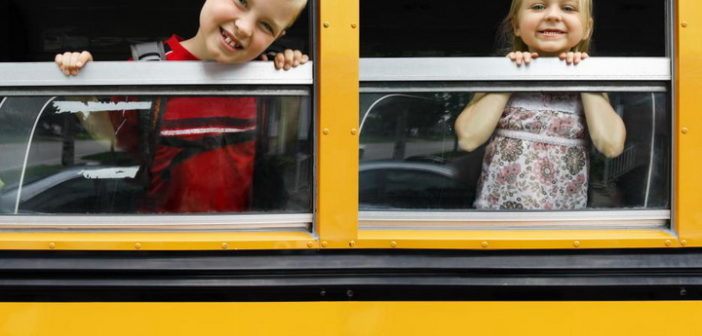For parents of very young children, choosing a preschool isn’t something we do lightly. After filtering schools based on basic criteria such as location, budget, and type (public, local private, or even international), we then take into consideration another level of criteria such as curriculum and availability of air purifiers until we eventually decide on a school… and it’s not even certain if we can get in.
And once we do—especially for kids going to school for the first time—we wonder if we have chosen the right school, because a month later, our kid is still crying every time it’s time to say goodbye!
Crying, fortunately, is something that eventually goes away as our children become more comfortable with their preschools. But along the way, one might hear or encounter situations which warrant some queries that parents might not have even thought of asking their schools until after enrollment.
And it’s quite hard to change your mind once you’ve paid the bill.
So here are a few points to ponder, and if you feel they’re relevant to your situation consider asking them before enrolling your child:
1. School Bus Availability: what if we’re the only ones left in our compound?
For those without cars and/or those who work, having the school bus fetch your child every morning is extremely convenient. In my case, it’s so much easier because I don’t have to prepare my younger daughter as well, or rush both through breakfast because my younger daughter won’t be able to have it until we return from sending her sister to school. Or worse—we might have trouble getting a cab (especially on rainy days or when there’s some government meeting, forcing many roads to close). One time we were more than an hour late for school!
And even though bigger schools generally provide school buses, they still mostly require a minimum number of students to apply from your compound before they accept your application.
And maybe you fulfill that requirement….for now. Maybe you started the school year with three kids from your compound taking the school bus, only to be left alone mid-year because their parents got reassigned elsewhere. In this situation you’ll need to ask your school: will my child still be allowed to continue riding the school bus? And if the answer is no, you’ll need to ask yourself: how important is having a school bus?
Raising a child with food allergies can be challenging. You have to be extra careful with food at home, be doubly careful when eating out with friends or snacks other families want to share with your child and ask your school to be careful of what they serve your child on your behalf. But not all schools might be as accommodating as you hope them to be, international schools included.
And so if your child has yet to develop food allergies, but you know it runs in the family, consider sharing your worries with your school of choice before enrolling and discuss what arrangements you can have if your child develops food allergies. Will they allow you to prepare your child’s food? Can they promise to help ensure your child never tastes risky foods (cause of allergy) while in the classroom?
3. What if the school values are very different from my family’s?
And after finally filtering your options to a few choices, there’s now the question of which school might be mentally or spiritually best for your child.
Beijing expats come from all walks of life, from different walks of faith. But the allure of promising international schools might distract you from the values, views and even the faith you want to pass on to your children. I know this is something many Koreans and Japanese definitely take into consideration, which is why so many send their children to schools mainly catering to their nationalities. And then there are those who send their children to schools teaching their faith.
And if you suddenly disagree with the things acceptable in your school, if you suddenly have a change of heart, then attempting to move your children to a new school could affect them negatively. Children crave stability, and moving schools while still living in the same city doesn’t exactly encourage that.
And so for this, I highly recommend reading through the local family magazines and seeing which school resonates with you best, even if those articles are about much older children. Those articles provide valuable insights into a school’s culture, and potentially your own children’s future views.
A friend was complaining about the parents at her children’s school when another friend made an interesting suggestion: transfer elsewhere.
The first friend was surprised. The second friend added, “The best way to see if a school fits you is to see if you can get along with the parents in that school. Their children will take up after them, which in turn will affect your kid. A great curriculum isn’t enough; you need to see the school’s choice of parents. So if you can’t agree with the parents of your school, then there’s a chance your child will be influenced by their kids.” She then started to tell us about how much she loved the parents at her daughter’s school and how they all have similar goals for their children. They have a strong community of like-minded parents and this is why she knows that the school was the best choice for her family.
One way to get to know your potential community better is by joining their events if there are any. With my daughter’s current school, we were invited by the admissions department to participate in one of the school’s events. There I met a few of the parents and also saw how attentive the teachers and organizers were to their visitors.
Another way to get to know your potential community is by hanging out at the main courtyard or school play area once all the children are dismissed. This is a great opportunity to see how parents of the community interact, and even how they reprimand or care for their children.
5. Who will my children’s classmates be?
The first school I enrolled my daughter in was a “bilingual” kindergarten, where 9 out of 10 teachers were Chinese and the tenth was a foreigner. During the enrollment process, the kindergarten’s headmaster pointed out their foreign students and their class photos where the foreign kids naturally stood out. But I didn’t sign up because of that; I signed up because I wanted a nearby kindergarten and a Chinese environment for my daughter. I got those, and so I was fine.
But enrolling in a school where you are expecting an international community is a different story. If this is something that matters to you and your family, confirm with your school the percentage of expats and non-expats in your child’s class-to-be.
6. How is the school ensuring my child’s privacy?
The advent of social media makes it so much easier nowadays for other people to share photos of our children without our knowledge or consent. The chance of this is even higher when the children are physically different from the locals. How is your school protecting your children’s privacy? Understanding the level of protection they’re receiving from the school will help ease your worries.
7. How does the school deal with challenging students?
I didn’t know anything about School A until a friend brought it up just to tell me never to go there. She shared the experience of a reliable source which, I have to admit, was a bit hard to believe.
But hard to believe or not, it’s a question that we parents shouldn’t be afraid to ask our children’s teachers. How do you encourage the children to share? How would you react when children become violent? Voice out your questions to quell all those unconfirmed rumors.
8. Are my kids watching Tom & Jerry during break time?
It’s hard to force schools to stop showing children TV programs from time to time, especially during the kids’ break time. Tom and Jerry, for example, is a cartoon show about a cat and a mouse always trying to outsmart each other, sometimes through violent means. There are also some racial implications in the show that might later on simply become acceptable to the children if they continue to be exposed to it.
There are many other better alternatives out there: Dora the Explorer, Sesame Street and more. But the first step is to know what shows your children might be exposed to so that you can suggest better alternatives.
What other questions should parents ask teachers before deciding on a preschool? Let us know your thoughts in the comments section below!
Jackie is a mom blogger over at Bringinguptheparks.com. There she writes about her family’s life and adventures in East Asia.










